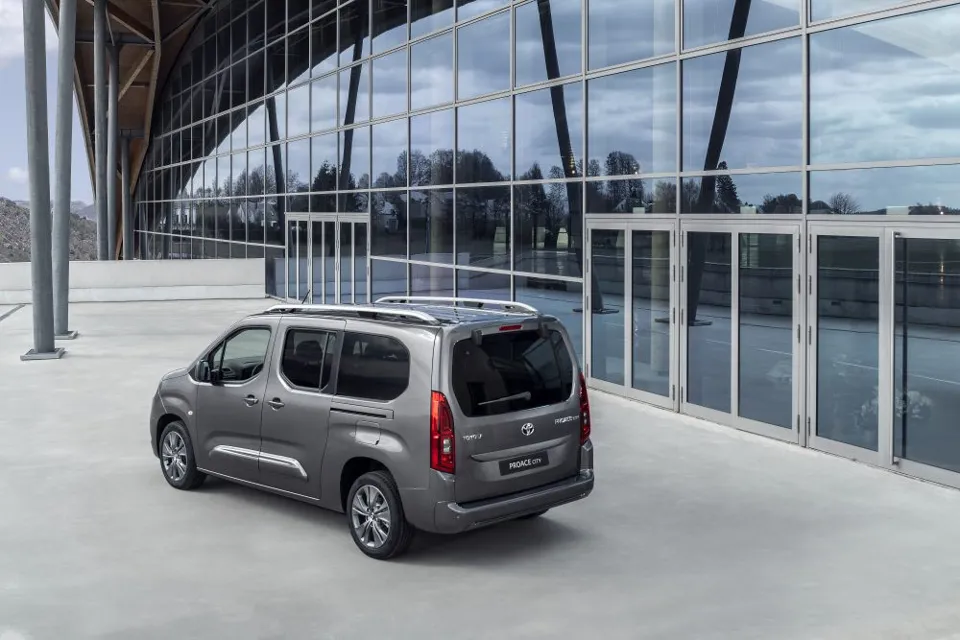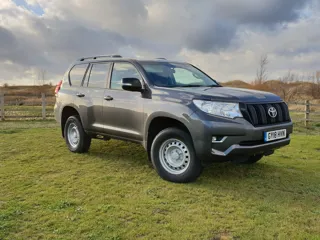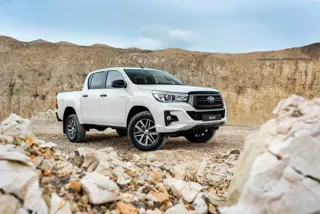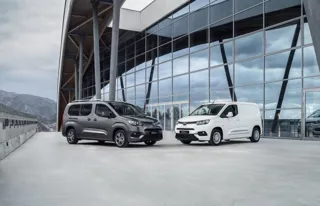Toyota is launching a major sales and marketing campaign in the UK and European light commercial vehicle markets.
It includes new models, including electric vans, a fresh brand image and a revitalised dealer network. “It’s a sector that is becoming a strategic pillar for us,” says Andrea Carlucci, director, product and marketing management, at Toyota Motor Europe.
The iconic Hilux pick-up and Proace, a rebadged version of PSA group’s Citroen Dispatch and Peugeot Expert, are being joined by Proace City.
Unlike its stable-mate it is based on Citroen’s Berlingo, Peugeot’s Partner, and Vauxhall’s Combo; Vauxhall and Opel, its European counterpart, were acquired by PSA in 2017.
Launched at this year’s Commercial Vehicle Show, the first Proace Cities look set to be delivered to UK customers in March 2020.
Battery-powered versions of Proace and Proace City are being rolled out in response to tighter exhaust emissions being introduced by major cities all over Europe, and could appear on this side of the Channel in 2021 and 2022 respectively. "We're increasingly finding that many companies are specifying the use of electric vehicles when they put work out to tender," says Carlucci.
An updated Hilux will be revealed next year.
Something that is unlikely to appear on this side of the Channel however is the new Black edition of Proace with its black alloy wheels, door handles and mirror casings. Toyota believes there would be too much of a clash with the top-of-the-range Design specification already offered in the UK.
Toyota 'treads carefully' with plans for 3.5 tonne panel van
Toyota’s European light commercial activities will now be promoted under the Toyota Professional banner - a branding that looks likely to be employed in Britain too - with a fresh brand image.
While Carlucci can now claim that Toyota’s range covers 75% of the European light commercial market, it has yet to introduce a full-size 3.5-tonne panel van. A rebadged version of Citroen Relay/Peugeot Boxer might be an option, but the company is treading cautiously, he says.
It has to be sure that the network can handle vehicles of that size and the conversions – dropsides, tippers and Lutons, for example – that are invariably associated with them.
“If you are going to be serious about light commercials then it’s a sector you have to look at,” he observes. “We recognise that it represents a substantial potential area of growth and the allure is there, but we have no plans to enter it for the time being.”
Why the renewed stress on light commercials?
A key reason is Toyota’s desire to capitalise on the continued expansion of the home delivery market. Umpteen thousands of products ordered online daily are delivered to consumers in vans.
“E-commerce grew by 11% across Europe in 2018,” he points out.
There is also the advantage that a large section of the fleet market represents predictable volume, says Carlucci. Major operators replace their vehicles at set times which tend to vary only if there is a major economic crisis.
Toyota’s British operation has been a pioneer so far as van network development is concerned, and many of the changes mooted for mainland Europe have already been implemented here.
Toyota's dealers under the spotlight
Light commercial vehicle centres are at the heart of Toyota’s dealership strategy.
Its UK network operation already has 24 of them, each of which is expected to employ a dedicated light commercial sales executive and have a representative range of vans and pick-ups on display. Their workshops have to have lifts with sufficient capacity to hoist a laden Hilux or Proace.
Each of the centres is also a business centre, and Toyota's aim is for all 63 of its UK network's business centres to achieve lcv centre status.
There are no plans to offer a Toyota van franchise to truck dealerships that do not have a light commercial range to sell, but would like one. "Our strategy is to reinforce our existing network," says Carlucci.























Login to comment
Comments
No comments have been made yet.